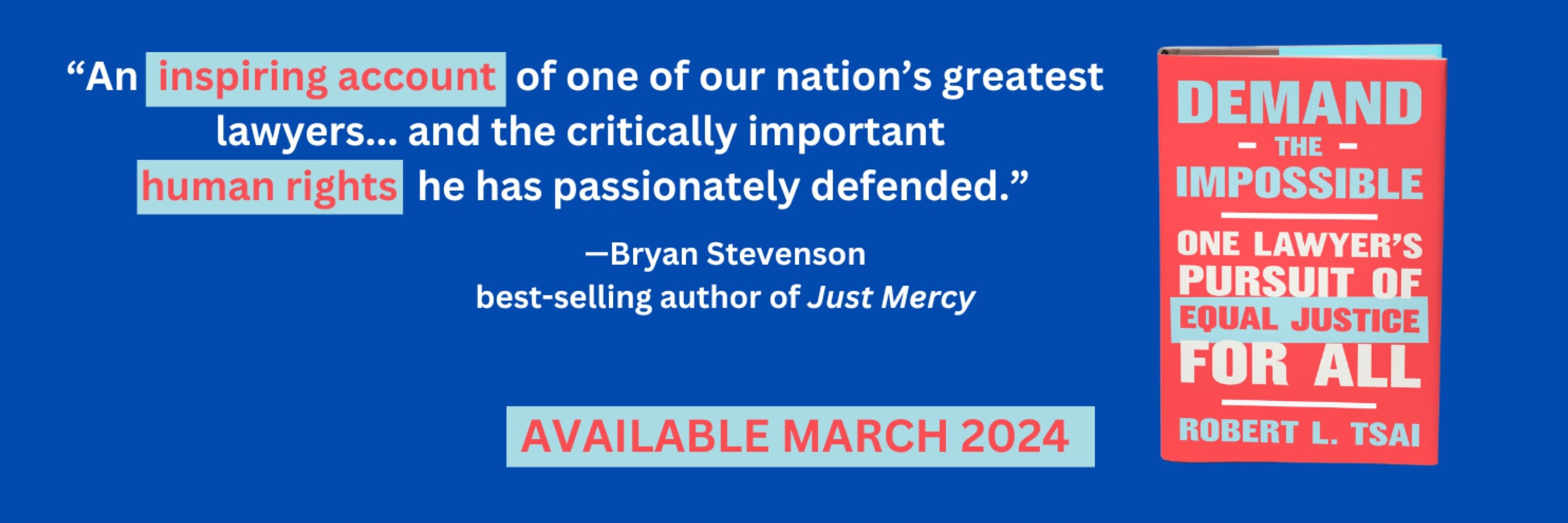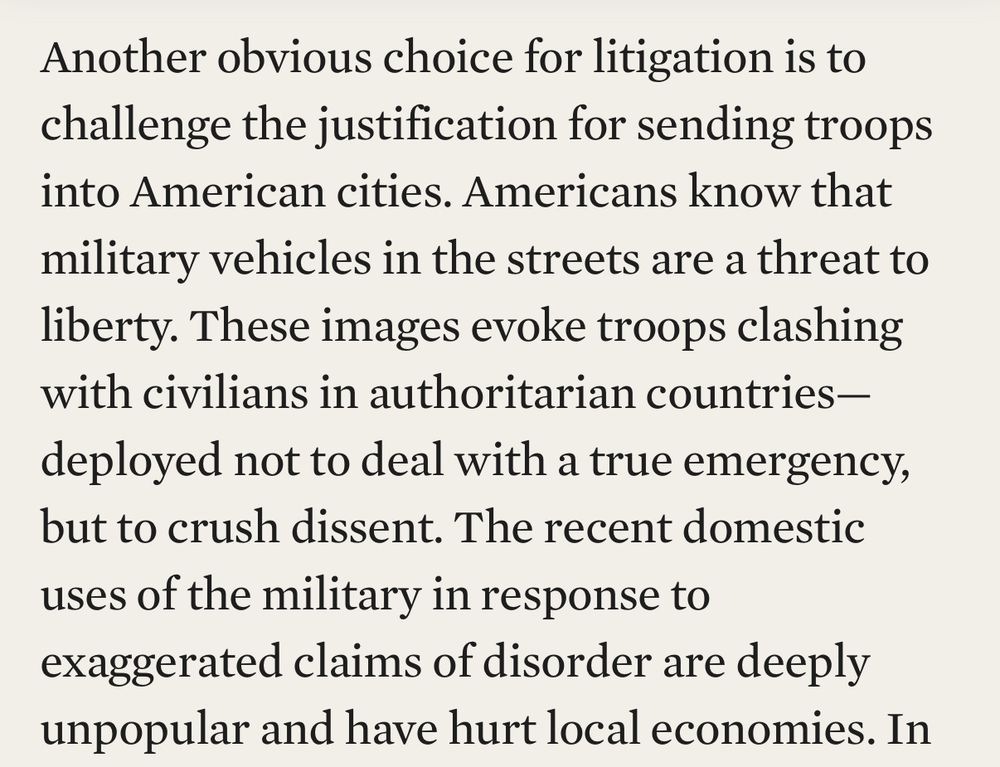Robert L. Tsai
@robertltsai.bsky.social
15K followers
600 following
2.5K posts
Author of DEMAND THE IMPOSSIBLE: ONE LAWYER’S PURSUIT OF EQUAL JUSTICE FOR ALL (2024) amzn.to/45LFzNg | Professor & Harry Elwood Warren Scholar, Boston University | constitutional law & politics, legal history, democracy | https://linktr.ee/roberttsai
Posts
Media
Videos
Starter Packs
Pinned
Reposted by Robert L. Tsai
Reposted by Robert L. Tsai
Reposted by Robert L. Tsai
Reposted by Robert L. Tsai
Reposted by Robert L. Tsai











